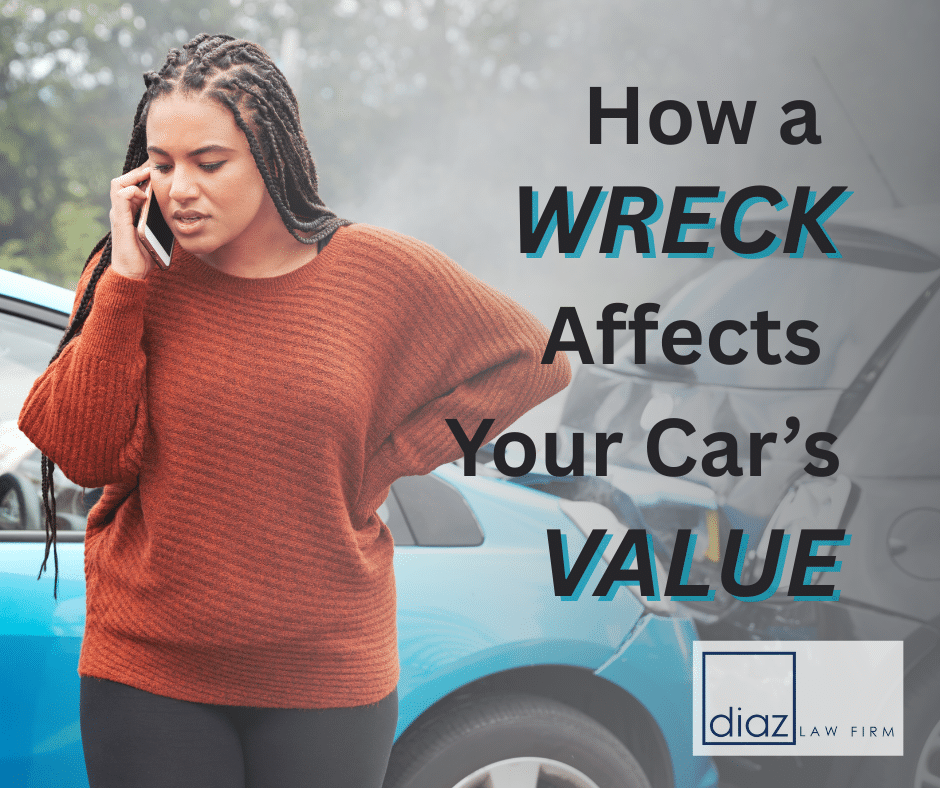What Insurance Doesn’t Tell You About Diminishing Value

Been in a Wreck?
Your Car May Be Worth Less Than You Think

If you’ve been in a car accident—especially one that wasn’t your fault—you might expect insurance to cover all your losses. But there’s one hidden cost most people overlook: diminishing value.
What Is Diminishing Value?
Even after your car is repaired to look and drive like new, its value on the market drops because it has an accident history. This reduction in resale or trade-in value is called diminishing value.
Imagine two identical cars—same make, model, and mileage—but one has been in a crash. Now, which one would you pay more for?
Key Takeaways:
– Resale and trade-in value can be reduced if a vehicle has been in an accident
Key Takeaways:
– Resale and trade-in value can be reduced if a vehicle has been in an accident
– Even if your car looks as good as new, your vehicle’s Carfax report records every accident
– If you weren’t at fault for your accident, you may be entitled to compensation for your loss
Why Does It Matter?
Most insurance companies focus on covering repairs—not the value lost due to the accident. That means you could be left with a car that is valued less than what you expect if you try to sell it later.
If you weren’t at fault for the crash, you may be entitled to compensation for this loss—by filing a Diminished Value Claim.
Are You Eligible to File a Diminished Value Claim?
Qualifications may include:
- Your vehicle was damaged in a crash caused by someone else
- Your car was repaired after the wreck
- Your vehicle was new or had a clean crash history prior to the crash
Time limits apply, so don’t wait to pursue your claim with the at-fault driver’s insurance company.
We’re Here to Help
We help clients recover what they’ve lost—including diminished vehicle value. Let us evaluate your case and help you deal with the insurance company the right way.
Schedule your free consultation by calling us at (601) 607-3456
GET YOUR FREE CASE EVALUATION
